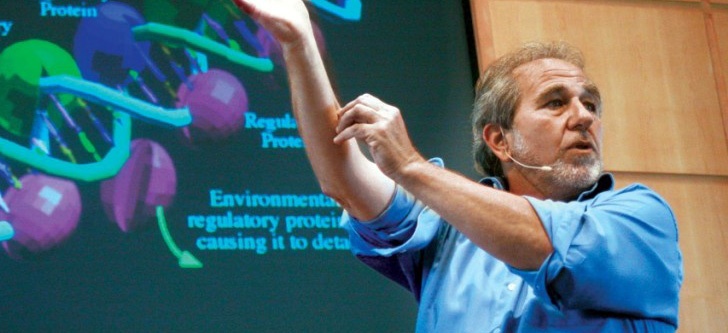
"So many of us are leading limited lives not because we have to but because we think we have to."
Many people believe they are who they are, and that they have limited means to change their health or life direction. "It is what it is," they say, "because of my genetic makeup".
Well, maybe not.
What does this mean, "we think we have to"?
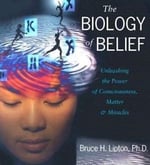 According to Dr. Bruce Lipton, medical school professor, research scientist, and author of The Biology of Belief - the notion of genetic or DNA "determination" - is untrue.
According to Dr. Bruce Lipton, medical school professor, research scientist, and author of The Biology of Belief - the notion of genetic or DNA "determination" - is untrue.
The Biology of Belief is a bold exploration of the biochemical effects of brain functioning. In the book, Dr. Lipton demonstrates how all the cells of your body are affected by your thoughts, and he discusses how to change your thoughts and thereby alter your health and your life for the better.
And yes, that includes healing from addiction!
.In the second part of our interview, Dr. Lipton spoke on his groundbreaking work in The Biology of Belief; specifically, we covered the following topics:
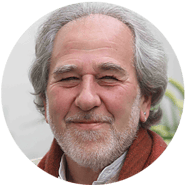 The difference between our conscious and subconscious programming, and how to change both for the better
The difference between our conscious and subconscious programming, and how to change both for the better- Practical tips for becoming more conscious and dealing with self-sabotaging beliefs and behaviors (including addictive behaviors)
Discover the topics we covered in the first part of our discussion on the The Biology of Belief, Part I.
Video Interview with Dr. Bruce Lipton
Audio Only:
Edited Transcript of The Biology of Belief: An Interview with Dr. Bruce Lipton
Caroline McGraw: There's this great line from your book which is, "So many of us are leading limited lives not because we have to but because we think we have to." I love that you're examining all of these limiting beliefs and the power that they have in our lives, because when we have folks in our program that's what we really start with.
We work with the judgments, the limiting beliefs, and also connecting to the emotions as well, working with those traumatized parts that are still very young, and are stuck in that programming.
{Editor’s note: check out our post Self Counseling: Be Your Own Therapist for more on these tools and techniques.}
So I guess I wanted to ask for folks for listening who want to start doing this work and start becoming more conscious and more mindful, some practical tips. Obviously I know things you know like daily meditations, stilling your mind, that's a really helpful way to start being conscious.
The Conscious and Subconscious Mind
Dr. Lipton: The first thing is to identify where are your limitations, because then you could say, "well, this is what I want to change." And that's why the first thing is easy. Just look at your life and tell me where you're struggling, that's a limitation.
[People say], "Well I want to change that," and I go, "Oh, well, so you want to change the program in the subconscious."
Here's what the biggest problem is: Number one, people say, "Oh your mind is in control," I go, "yeah your mind is in control, but actually there are two parts to your mind." There is the conscious and the subconscious. Now when we put them together and say "the mind." then we think it should operate as one uniform thing. That if my conscious mind becomes aware, then my subconscious should become aware as well, because they're the same thing.
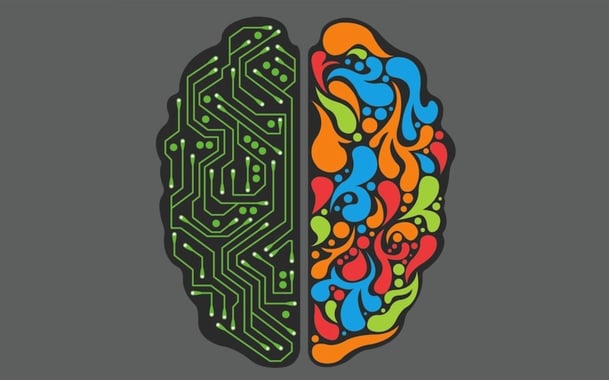
That is the biggest problem of all, and that is the two minds have two different functions and they learn in different ways—that's where the problem comes from.
Okay, what are the functions?
- The conscious mind—the newest edition which is part of your brain, right behind your forehead, the prefrontal cortex—is the seat of it.
- The conscious mind's function is creativity. That's why humans are so different than other animals because we have such a creative mind, because the subconscious mind behind it is the habitual mind.
- Whatever you learn you're going to repeat. That's what habits are all about.
But conscious mind is creative, and says, "Yeah, but I could look at it this way, change the way I look at it and decide to do it this way."
Conscious mind can do that, but then the problem is when the conscious mind is thinking you're not in control anyway, so you're gonna revert right back to the subconscious.
Subconscious is habit mind, conscious is creative.
You want to change the subconscious.
Subconscious is habit mind, conscious is creative.
What do you want to change? What is it that's missing that you want?
Say I want love. What am I going to do with my subconscious mind?
Well, my subconscious mind in some way is limiting me because I'm not finding it. So I want to change and I want to put in a program of love—but how can I change my subconscious mind?
You must firsts use the conscious mind because it's creative. Let me just explain the beautiful part of a creative mind.
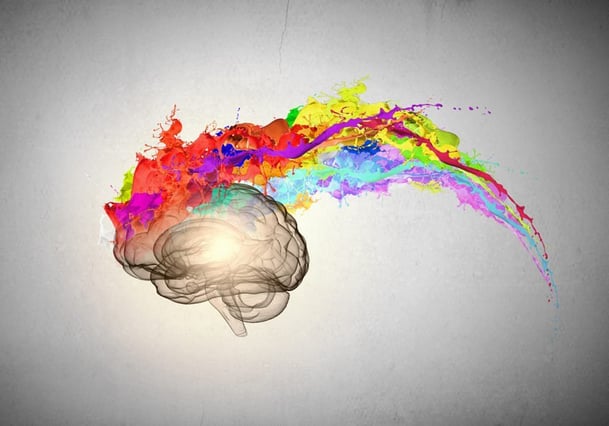
You put information in that thing and download it; read a self-help book, listen to this podcast and then go, "Wow, my conscious mind just heard Bruce talk about this. I got it!"
Read a self-help book, and ask yourself if you understood it. Let's say I give you a quiz and you get 100%. Then I say, "Now that you've read the self-help book is your life any different? The answer is no, but you could pass the test.
Your conscious mind knows the information, but your life is still the same. Why?
It's ecause the conscious mind's creative mode allows it to learn in many different ways. You could just go "Aha!" and change the belief...it's creative.
Subconscious is habit. Why is that important? Because if I have a habit I wanted to change … I learned how to walk before I was two; do I want to wake up one day and forget how to walk? No. I don't want to all of a sudden say, "Oh Geez, I'm really walking funny today, must have lost my mind how to walk."
The point is this: subconscious mind resists change.
How the Subconscious Mind Learns
So the conscious mind can learn, "Oh wow, this really what I want, this is how to do it and this is great!" But you still have the same life.
Why? Because 95% of the day you're not operating from the creative conscious mind, you're operating from subconscious.
And no matter how smart the conscious mind got, it did not change the subconscious because the subconscious learns in 3 primary ways.
Subconscious Learning Way #1: Hypnosis
Number one, how did it learn the first seven years? Hypnosis.
The brain was in theta vibrational state. On EEG - electroencephalogram - brain activity, theta is just below consciousness.
But that's subconscious, so I say for seven years you were operating from subconscious.
How does it work?
It's like a video recorder, whatever I saw my parents do … whenever behavior i observed; how they responded to each other, how they responded to me, how they responded to the neighbors, how they responded to the police, how they responded to every situation. I learned by just watching. So I downloaded that.
If you want to change the subconscious, hypnosis is a good way to do it because that was a primary way.
How do you do hypnosis?
Most think go to a hypnotherapist, but you can do it yourself.
"I can hypnotize myself?" you ask?
Yeah, because every night when you're just falling asleep when the conscious, or alert mind, starts to let go, that's when sleep kicks in.
 But as the conscious mind just lets go, the subconscious mind kicks in.
But as the conscious mind just lets go, the subconscious mind kicks in.
Just when you're going to sleep and the conscious mind lets go, this period of time you're operating from theta, that's the same vibration that you operated in the first seven years.
Point: if I put on a pair of earphones and I'm playing a program of the behavior that I want, I want this behavior. There are programs, you can buy them all over.
Every night I can put this on as I go to bed.
As soon as my alpha mind lets go, I'm in theta which is hypnosis and whatever the heck is playing through the earphones is not going to my conscious mind, it's going into my subconscious mind.
That's called auto hypnosis.
You don't need to go see anybody, you just have a look at your life say, "I want to change this program I would like my program to be like this."
I have a program, a CD, and it's got the program on it, and I play it when I'm going to bed. I'm not even conscious when it's going in. I'm asleep when it's going in.
This is the number one way to reprogram your subconscious: hypnosis, autohypnosis programs, self-empowerment programs.
Subconscious Learning Way #2: Repetition
How many times did you have to say ABC before you get the Z?
Number two: once you're past seven years of age, the subconscious still learns but not through hypnosis; through repetition.
How many times did you have to say ABC before you get the Z?
You repeated it and you repeated it and every time you added a new letter.
You repeated it and then guess what, when you got to Z you could sit there and go A all the way to Z. You never had to do it again because by repetition, practice you learned it, and once its learned, you don't have to go through the ABCs again. Its in your head.
Math tables: two times two is four, two times four is eight, two times eight ... I say how do you do that? You memorized it.
You remember, "okay, this is how I do it, just like I did the alphabet, memorize, repeat, habituate."
How do you drive a car?
You got in the car and at first it was your conscious mind because you had no subconscious program.
And your conscious mind was overwhelmed. Look out the window and see what's going on, look in the mirror see what's going on, look at the gauges on the dashboard see what's going on. Notice the pedals on the floor, listen to the engine and what's going on. For some people when they first get in the car it's like that's too many things to pay attention to.
But when you've driven the car for a period of time, guess what?
Now you get in the car and you never think of one of those things.
Why? It's automatic.
You put the key in the ignition and you could be thinking of, "When I get to the store I'm going to get this and I want to get that ..."
How the Conscious Mind and Subconscious Mind Operate
Say you're in the car, you have a passenger, you've been driving for a while and you get into this conversation, back-and-forth talk.
And then you look out the window and you realize, I haven't paid attention to the road for the last five minutes, I've been talking. It could come across your mind like, "Wow, I'm still on the road! I didn't hit anything. I'm still okay, I'm still driving."
Who drove the car?
Autopilot, the subconscious.
Why? Because the conscious mind was directed over here, focused on a conversation.
Autopilot is a million times more powerful than conscious mind; it's a million times better at driving a car once you give it the program.
This is like the Bill story again: You just were talking for 10 minutes, you had this wonderful conversation, tell me what you were talking about. "Oh we talked about this and this,"
Now tell me what was on the road as you were driving. No idea! It’s the same story as Bill.
You want to be happy? You have to habituate happy.
When you are thinking or focused in a conversation and not paying attention, the subconscious takes over. And when it took over, you had no idea of what it was dealing with. It dealt with everything.
You're still in a car and you're driving pretty damn good, so what was the point?
The point was this, again, when the conscious mind is busy, it can't see what the subconscious is doing. And most people are familiar with this. You've done this yourself.
Why is it relevant?
Because that's the typical day where the conscious mind is so focused.
"Fake it till you make it."
I can't see the subconscious. I want to change it, but how do you form the habit?
The answer is repetition.
- Practice driving the car
- Practice doing the ABC
- Practice tying my shoe.
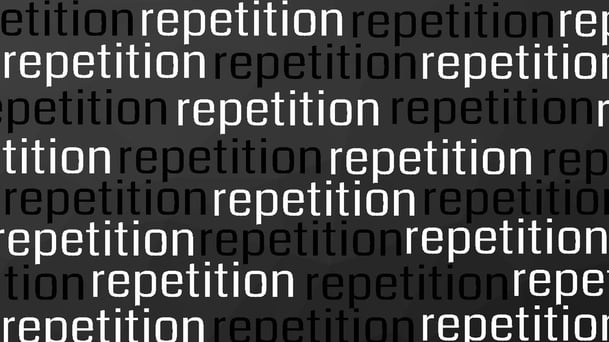
Meaning, you want to be happy?
You have to habituate happy.
Every day — no matter if you're not happy — you have to tell yourself, "I am happy, I am happy," you have to repeat it, habituation, repetition.
Why?
I'm consciously repeating it every day, I'm looking at my life, my life really sucks.
But say I am happy ... because repetition is how the subconscious mind learns.
Here's the fun part because they have to have repeated it a number of times so the subconscious says okay I'm happy, I've learned this.
Why is it relevant?
95% of the day, the subconscious mind's function is to make the program real.
Positive Programming on Emotional Health
If my program is, "I am happy," the function of the mind is to make sure I'm happy.
If the program says, "I'm going to get cancer," because I heard that from somebody else, then the function of the mind is to make sure I get cancer because that's the belief I'm working with.
If it says, "I am a victim and I can't get out of this," then the function of the mind is showing you you're a victim and you can't get out of it.
So what we need to recognize is this: I want to reprogram it.
- Hypnosis
- Habituation
- Keep repeating it even if it sounds absurd
I'm training my subconscious.
Because when he gets the program, "I am healthy," what's becomes the job of the subconscious? Manifest the program, that's the job of the subconscious.
If the program is positive, then you get a positive result, if the program is negative you're going to get the negative result because you're going to get whatever the program is.
With habituation—and that's not a sticky note on the refrigerator...that's just a suggestion—you have to religiously do something.
Subconscious Learning Way #3: Energy Psychology
Lastly there's a new psychology called energy psychology.
There's a whole variety of different modalities of this on BruceLipton.com. I have 20 to 30 different belief change modalities called energy psychology.
Energy psychology techniques engage something called super learning, and in super learning I can download a new belief in 10 minutes,
I can change a belief that's affected my life for 50 years and using super learning rewrite a program in 10 minutes.
Why is this relevant?
Because this is what we need now, because we’re running out of time, and the world needs us to change our behavior.
And in the first place we need to change our own behavior.
How do you do it? Hypnosis, habituation, or one of the new modalities called energy psychology, which is super learning which opens up the brain to download something instantly.
That's what super learning is all about.
Living Heaven on Earth
Each one of us can take back our power and start to live heaven on earth like you did when you fell in love, even if it was only for a week.
If you could do that every day of your life and everyone around you is doing that every day of their life then the simple truth is this, then earth does become heaven.
If we're all living as if it's heaven and the function is to create … if the mind’s function is to take that vision and manifest it, if I believe I'm living in heaven, then my world experience would be … what would it be like if I lived in heaven?
Being in love is the one time you unconsciously, unknowingly took back power.
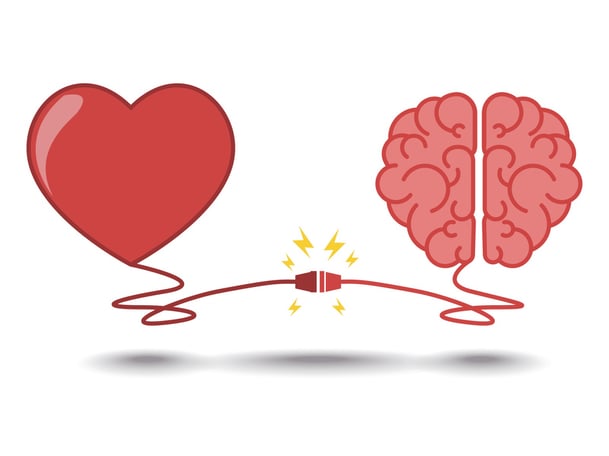
You unknowingly became powerful.
In 24 hours you changed your whole demeanor of life after you met this person.
You could have done it in different ways. It didn't have to be with a person.
You didn't need to fall in love with a person you could fall in love with gardening if you're a gardener. You're glad in the garden and you're digging the garden, and you're having so much fun, and the plants are growing and everything.
You just manifested heaven on earth for you. Isn't that beautiful living in the garden? It doesn't have to be another person, love is just focusing on something you desire; a pet, a garden, artwork, cleaning up the garage.
Keep your conscious mind in front.
Really?
Yeah because when I'm doing it, I'm creating order and happiness and all that.
Being in love ... it could be anything that keeps your conscious mind in front.
Because when your conscious mind goes in the back is when you become the product of your subconscious program.
This was not my life and now I've been living a honeymoon with my partner for 20 years. I wake up every day going, "Wow we're still here, this is great. I love this place, I love you. Everything is great."
My first 40 years I was miserable in my social and personal life—miserable, traumatizing.
Addiction: Not Victims, But Creators
It's kind of fun because basically it says we are not victims, that's the whole story. We have to own, I am a creator.
If you're a creator and you don't like the creation, only the creator's going to change that creation. "I'm the creator, I'm the one that's going to change it."
But if you didn't know how to change it and you thought just by reading the self-help book I should get it, and you read the book and it didn't work.
It's not because you didn't work, it's because that's not the way that you change your subconscious.
Therefore, it gets frustrating because we are so smart in our conscious minds about how we should do things, and how we should live …
But you're not using that mind 95% of the day, and that's where the limitations come from.
Caroline McGraw: Wow. That's so freeing to know that and I know that this will benefit so many people.
Dr. Lipton: And I know it's real because I'm a student of it. I studied the cells they told me how to do it.
Power of Thought on Psychological Health
I just really hope the that this community understands there's a time to stop with, “I'm a victim.”
Because if you leave your victim ... the function of the mind is to create reality out of your belief that is the function of the mind. That's why placebo effect works.
The placebo effect is, "Oh this pill is going to heal me because the doctor told me is the newest, greatest thing and it's going to heal me. I take the pill and sure enough the thing healed me then I find that was a sugar pill. And everybody says, "Oh that's called the placebo effect."
What is the placebo effect?
Mind over matter.
You can have the placebo effect in your life, not just in the pill.
 You can have a placebo effect and that's a result of positive thinking, but then this end cap needs to come on to that.
You can have a placebo effect and that's a result of positive thinking, but then this end cap needs to come on to that.
It's not the power of positive thinking, it's the power of thinking.
What's the difference?
Positive thinking can give me a positive result but negative thinking, which we never talk about at the scientific level, is called the nocebo effect.
The nocebo effect is a negative thought is equally powerful as a positive thought, it just works in the opposite direction.
It's the power of thought, positive or negative. It's the power of thought.
Negative thoughts are going to chop your feet off from under you.
And we have not been emphasizing in our world that, hey, look, your negative thoughts, they're going to chop your feet off from under you. Your negative thought is what's disempowering, your negative thought is manifesting in its expression.
So don't think that negative thoughts are just passing through and they're irrelevant. Negative thoughts are being manifested by the brain because that's its function.
So if you feel yourself a victim, that's a negative thought, then guess what, the function of the brain is, "Let me show you you're a victim so then your thought is real." That's what the nature is.
Curing Addiction: Change Our Mind to Positive Thinking
So for me the most important thing now is to recognize our thoughts are being turned into reality by the subconscious, that's its job.
If our thoughts are not positive, not supporting us, they're not in love, then the function of the mind is to take those opposite things and make them the real expression.
And when we change our mind we are empowered.
Our thoughts are being turned into reality by the subconscious, that's its job.
I don't want people to think they're victims because people say, "Genes did this and genes did that."
Less than 1% of disease is connected to genes.
And there's only very few diseases that are directly connected to genes, like cerebral palsy, Tay-Sachs disease, hemophilia, about four more. And if you have one of those specific diseases those are the only diseases that are directly connected to genes.
The idea of alcoholism as a gene is wrong. Alcoholism is a program of how to defend yourself in the world by observing how your parents did it.
It started in utero and you weren't even conscious; your machine was recording.
A child in utero is learning from the experiences of the mother.
What does it mean?
If you play music to a fetus as it's growing, when that baby is born and you play the music, it knows the music.
If the father talks to the abdominal wall and talks to the fetus as it's developing, when the baby is born and the father opens his mouth the baby will know which one the father is because the baby has learned that voice.
Learning is occurring.
And guess what is important?
The baby learns about what's going on in the world even in utero.
How can a baby learn what's going on in the world?
Because the mother is responding to the world, and the chemistry from her brain that is organizing her body to do with her beliefs is also going into the fetus. If the mother is an addict, the fetus becomes an addict.
Why?
Because the chemistry of that behavior ... not the knowledge, not the words, not which drug, that's not relevant. It was that when I'm upset I do this, that's a learning.
So the fetus learns this, no words are involved.
I consider behavior like a song. There's lyrics and music. The emotional chemistry is music. So the baby in utero - just like hearing the words - is learning the emotional chemistry, which plays like music. And so it's born with the song of behavior, but no words. The rest of its life is to take the song and then put lyrics to it. Then they play the same song but with different lyrics,
They got this because we are learning in the last trimester of pregnancy … anything that repeats itself, a pattern in a mother of chemistry, of emotion … that pattern is learned even before the child is born.
So we got programmed even before we were born.
And then this still comes down to the conclusion, you want to know what the program is, just look at your life.
About Dr. Bruce Lipton
Dr. Bruce Lipton is a stem-cell biologist, best-selling author, recipient of the 2009 Goi Peace Award, and an internationally recognized leader bridging science and spirit. Dr. Lipton began his scientific career as a biologist, receiving his Ph.D. from the University of Virginia before joining the University of Wisconsin’s School of Medicine in 1973. Dr. Lipton’s research on muscular dystrophy, studies employing cloned human stem cells, focused upon the molecular mechanisms controlling cell behavior.
His research at Stanford University’s School of Medicine revealed that the environment (operating though the membrane) controlled the behavior and physiology of the cell, turning genes on and off. His discoveries - which ran counter to the established scientific view that life is controlled by the genes - presaged one of today’s most important fields of study, the science of epigenetic.
Learn More About Underlying Core Issues That Cause Addiction
Addiction is a learned behavior, often begun to protect from external hurts. Learn more about healing underlying core issues and how it can help you on the road to overcome your addiction.
Download E-Book Healing Core Issues



